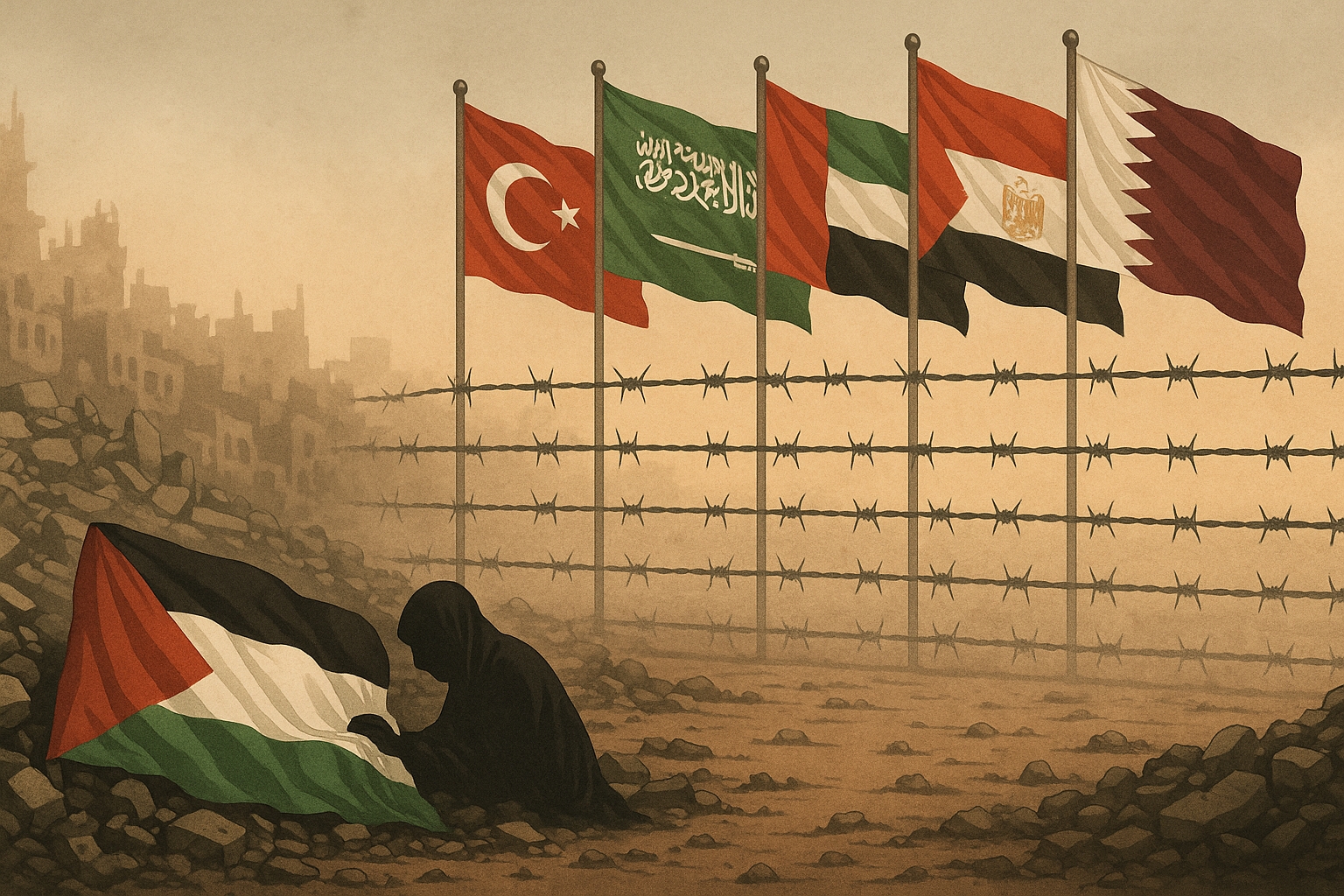



 Zafar Bangash
Zafar Bangash
The zionist genocide of Palestinians in Gaza (and the West Bank) has exposed the impotence of Muslim nation states in a stark manner. There are 57 Muslim nation states but barring the Islamic Republic of Iran, not one state has lifted a finger to help alleviate the suffering of the Palestinian people much less stop the genocide.
Instead, most of them have aligned themselves with or are lining up to join the zionist entity. Some, like the United Arab Emirates (UAE) and Turkiye, are also doing brisk business with the occupation regime. Other Arabian potentates are equally eager to join the surrender bandwagon.
Is this dismal state of affairs the result of Muslims being small in numbers or lacking resources? Here are some statistics.
There are nearly two billion Muslims in a world with a population of some eight billion people. Similarly, Muslims occupy 20% of the world’s landmass and possess 40% to 60% of the world’s oil and gas reserves. Their mineral wealth is also enormous.
And then there are countries with large standing armies. Pakistan, Egypt and Turkiye immediately come to mind. Despite these impressive statistics, Muslims hardly register on the global stage. What is the reason for this dismal state of affairs?
The fundamental reason is legitimacy, or lack thereof. The overwhelming majority of regimes are either military dictatorships (Egypt and Pakistan, for instance) or are imposed by the colonial powers such as the tribal/clan-based monarchies in Saudi Arabia, Jordan, the UAE, Qatar, Kuwait, Bahrain, Morocco, et al.
Lacking popular support, they are dependent on foreign powers for survival. Some have to fork out trillions of dollars to the imperialists to be allowed to stay in power.
Their dismal failure, strikingly demonstrated by the ongoing genocide in Gaza, points to their illegal systems. They were not designed, nor are they capable of solving any of the problems of the masses in their societies. This is obvious to any reasonably informed observer.
Almost everywhere Muslims face problems at multiple levels: socio-economic, political and military. Widespread poverty borne of gross inequality is rampant. The elites lead a life of rapacious extravagance while the poor become poorer.
Clearly, any system that does not address the basic needs of the people must be changed. To do so, it is imperative to properly understand the nature of the system in society. With the sole exception of the Islamic Republic of Iran, the governing system in every other Muslim nation state is foreign, mainly western-imposed. These systems are not designed to serve the people in those societies.
The tribal or clan-based societies—Saudi Arabia, the United Arab Emirates, Qatar, Bahrain, Jordan etc—also serve the interests of their imperial masters. Now they have become slaves of the zionist state of Israel as well.
One of the most debilitating influences of colonialism has been on the Muslim mind. It is so pervasive that it has influenced the thinking of even most committed Muslims. Far from their thinking being shaped by the teachings of the Qur’an and the Prophetic sunnah and seerah, they think within the framework of the western paradigm.
This is most clearly evident in the political party approach. While claiming to be Islamic movements, they operate under the rules of the same jahili system that has brought Muslim societies to their present dismal state.
This is a colossal failure of understanding and has brought nothing but grief to otherwise well-meaning Muslim leaders. Examples can be found in the experiences of the Ikhwan al-Muslimoon in Egypt, the Islamic Salvation Front in Algeria, the Jama‘at-e Islami and Pakistan Tehrik-e Insaf in Pakistan and the Islamic Party of Malaysia. Turkiye under the AKP has similarly made many compromises with the jahili Kemalist system although one must ask whether Recep Tayip Edrogan is serious about his Islamic commitment. There is no relationship between his soaring rhetoric and policies.
So, sincere Muslims can rightly ask: what should the Islamic movement do? The first step is to stop operating under the rules of the imposed jahili system. That system must be demolished as Imam Khomeini did through the Islamic revolution in Iran. Once the existing system was defeated and overthrown, only then di it become possible to build a new structure.
This is also what we learn from the Seerah of the Prophet (ﷺ). At one stage in Makkah, the chiefs of various clans approached the Prophet (ﷺ) with an offer. They said, they will abide by the deen of Islam for one year and the following year, they all, including the Prophet (ﷺ), will abide by the mushriks’ deen.
Before the Prophet (ﷺ) could respond, the answer came from on High in the form of Surah al-Kafiroon. We would do well to remind ourselves of the contents of this surah.
“Say, ‘O you who are deniers [of Allah’s power and authority]! I do not conform to that which you conform to [as supreme power and authority], And neither do you conform to what I confrom to [as the Supreme power and authority]. And I will not conform to that which you [at all times] conform to, And neither will you [at all times] conform to what I conform to. To you your deen, and to me, my deen.’” (The Ascendant Qur’an, Surat Al Kafiroon).
To achieve true liberation, Muslims must first liberate their minds. As the late Dr Kalim Siddiqui said in his final book, Stages of Islamic Revolution, before he joined heavenly company in April 1996, there must be a revolution in Muslim political thought.
That process has to start in earnest beginning with a clearer understanding of the noble Qur’an and the Sunnah and Seerah of the Prophet (ﷺ) through the prism of the power dimension.
